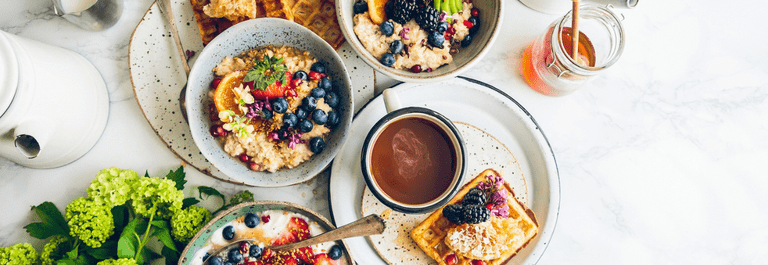If you suffer from eczema, you may have already discovered firsthand the effect your diet can have on your skin. The food you eat matters, not only for your overall health and wellbeing, but also for managing your eczema.
In fact, what you eat can be the difference between clear skin and a flare up.
In this post, we provide helpful information on the relationship between eczema and diet, as well as share the best foods to avoid or consume more for an eczema cleanse.
Eczema and Diet
Eczema is an inflammatory condition that causes the skin to develop itchy, irritated, red rashes. In some cases, the skin may also develop blisters or a thick, leathery texture known as lichenification.
Although eating certain foods doesn’t ‘cause’ eczema, it can trigger a bad reaction or a flare up. That’s why it’s so important to understand your food triggers and maintain an eczema-friendly diet.
Eczema Detox Food List
Because everyone is different, the same food will not necessarily ignite the same reaction in everyone. That said, here are a few common eczema food triggers that you may want to limit or avoid if you want to do an eczema liver detox or diet:
- Citrus fruits (such as lemons, grapefruit, and limes)
- Gluten or wheat (such as barley, pasta, baked goods, and beer or malt beverages)
- Spices (such as vanilla, cloves, and cinnamon)
- Tomatoes
- Dairy products
- Eggs
- Soy
- Nuts
- Red Meat
In addition, you want to avoid inflammatory foods that can trigger inflammation. These tend to be processed foods that contain preservatives or artificial ingredients.
We recommend steering clear of microwavable dinners, packaged deli meats, and foods high in refined sugar including soft drinks, fast foods, and sweets.
Even seemingly healthy foods, like canned fruits and vegetables, can be triggering for eczema-prone skin due to their high sugar content.
Which Foods Should You Eat Instead?
Now that you know which foods to avoid, let’s talk about the good stuff. Here are some anti-inflammatory foods you should increase your intake of if you want to have healthier skin:
- Fruits (cherries, blueberries, grapes)
- Vegetables (brussel sprouts, broccoli, cauliflower, leafy greens)
- Heart Healthy Oils (olive oil, flaxseed oil, and coconut oil)
- Fatty Fish, which are high in omega-3 fatty acids (salmon, sardines, shrimp, trout)
In general, you want to lean towards foods that are rich in fiber such as proteins, whole grains, healthy fats, and fresh produce.
It’s also a good idea for your gut health to incorporate foods that are high in probiotics. This can include foods such as sourdough bread, tempeh, and miso soup. Quercetin, which is found in apples, spinach, and kale, is a powerful antioxidant and antihistamine which is another good choice for eczema-prone skin.
Find your Food Triggers: Eczema Elimination Diet
The relationship between food and your body can be pretty complex. That’s why it’s so important to figure out what works for you. One way to figure out which foods may be triggering your eczema is to undergo an eczema elimination diet.
As the name implies, this involves removing certain foods from your diet for a set amount of time, usually, 3-4 weeks. Then, slowly incorporate the food back in and carefully monitor the results to see which caused a reaction.
Please note that an eczema elimination diet is not intended to be a long term diet.
The goal is to only reduce your intake of a triggering food if possible, but not eliminate that food all together.
Be sure to speak to a dietician or medical professional before undergoing an eczema elimination diet to make sure your body is still getting all essential nutrients. This is especially important if children are involved or if you are cutting out a large food group.










